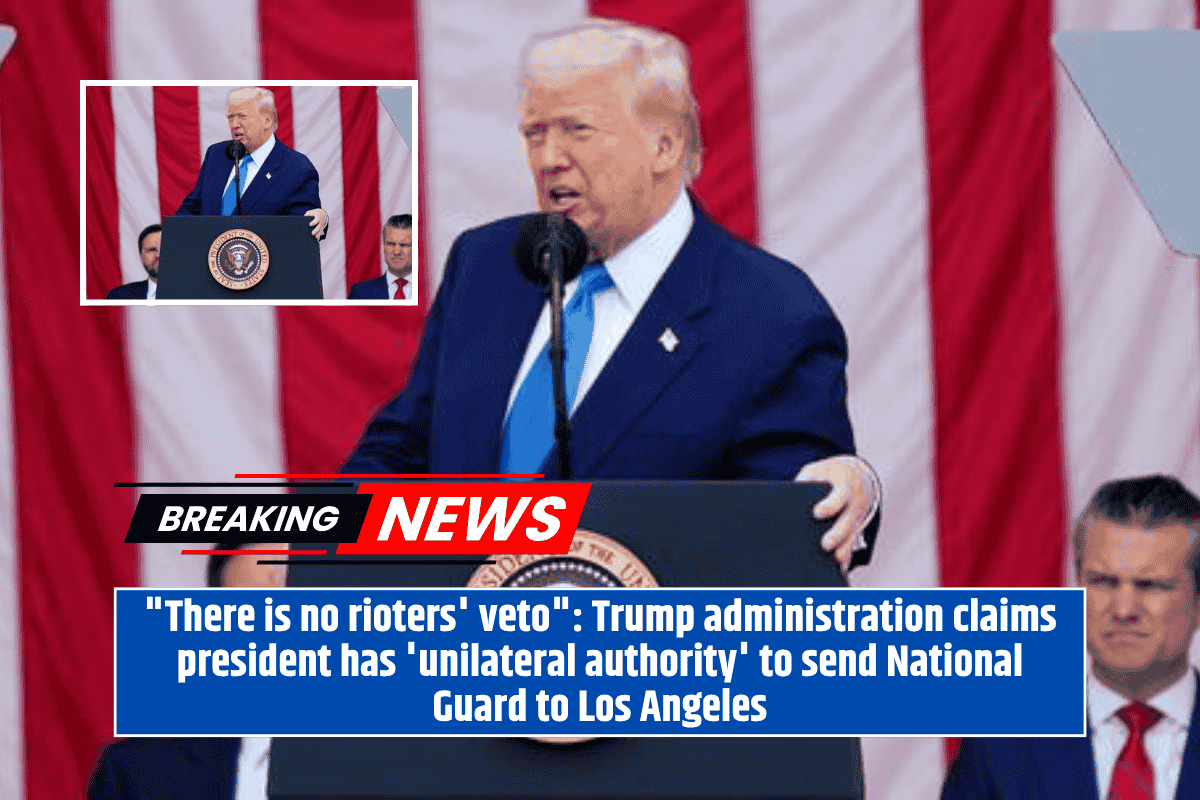In a recent court filing, the Trump administration strongly rebuked California Governor Gavin Newsom over his efforts to prevent President Donald Trump from using the U.S. military in response to immigration protests in Los Angeles.
The U.S. Department of Justice (DOJ) filed a 32-page opposition motion, arguing that the president does not require anyone’s permission to activate the military to protect federal property and personnel.
Government’s Argument: Presidential Authority to Mobilize the Military
The DOJ’s filing opened with an accusation that Newsom was using the court system for political purposes. The motion emphasized that under the U.S. Constitution, the President is the Commander in Chief of the armed forces, responsible for ensuring the protection of federal personnel and facilities.
According to the DOJ, the president has the constitutional and statutory power to mobilize the National Guard and Marines to protect federal property against “lawless violence” directed at federal law enforcement.
This legal dispute arose after President Trump mobilized the National Guard in response to widespread protests in Los Angeles against Immigration and Customs Enforcement (ICE) actions. On February 16, 2024, protests turned violent with property damage, and Trump ordered the National Guard to support law enforcement.
The situation escalated, prompting Governor Newsom to file a request for a temporary restraining order, seeking to prevent the military from working with ICE. The judge, however, rejected Newsom’s request but allowed for further legal proceedings.
DOJ’s Rejection of Newsom’s Claims
The DOJ’s opposition motion argues that Newsom’s concerns are “baseless.” The government contends that neither the National Guard nor the Marines are directly involved in law enforcement activities. Instead, they are providing protection for law enforcement officers, a role long established as part of their duties under federal law. The DOJ dismisses Newsom’s claims as speculative, arguing that there is no evidence to support the idea that the National Guard or Marines will be used unlawfully in the future.
The legal dispute centers on the federalization of National Guard troops in California. Governor Newsom’s lawsuit claims that Trump’s federalization of 4,000 members of California’s National Guard was unconstitutional, arguing that the president must coordinate with the governor for such actions.
Newsom points to 10 U.S.C. § 12406, a statute that has historically been invoked under rare and highly unusual circumstances. He claims that the president cannot unilaterally federalize the National Guard without the cooperation of the state governor.
DOJ’s Response: The President’s Authority to Federalize the National Guard
In contrast, the DOJ argues that the statute provides the president with unilateral authority to call into federal service the National Guard of any state. According to the DOJ, the section of the statute stating that “the President may call into Federal service members and units of the National Guard of any State” gives the president the power to federalize the National Guard without the governor’s consent.
The DOJ argues that while the order is issued through the governor, the decision to federalize the National Guard ultimately lies with the president, and the governor cannot veto such a decision.
The Court’s Jurisdiction and the Discretionary Power of the President
The DOJ further argues that the court has no jurisdiction over the president’s military decisions. The DOJ’s motion states that the president’s determination to call the National Guard into service is a discretionary judgment, authorized by the statute, and is not subject to review by the courts. The court, the DOJ argues, cannot second-guess the president’s decision to mobilize the military in response to protests or unrest.
The Legal Battle Continues
Although the judge denied Newsom’s request for a temporary restraining order, the parties involved are still briefing their arguments regarding the potential for an injunction. Newsom’s lawsuit continues to argue that Trump lacked the statutory authority to control California’s National Guard, while the DOJ maintains that the president has the constitutional and statutory authority to act independently in this matter.
The case raises significant questions about the balance of power between the federal government and state authorities, as well as the limits of presidential authority when it comes to mobilizing the military. As the legal proceedings continue, the outcome could have major implications for future conflicts between state governors and the federal government over military intervention in state matters.
